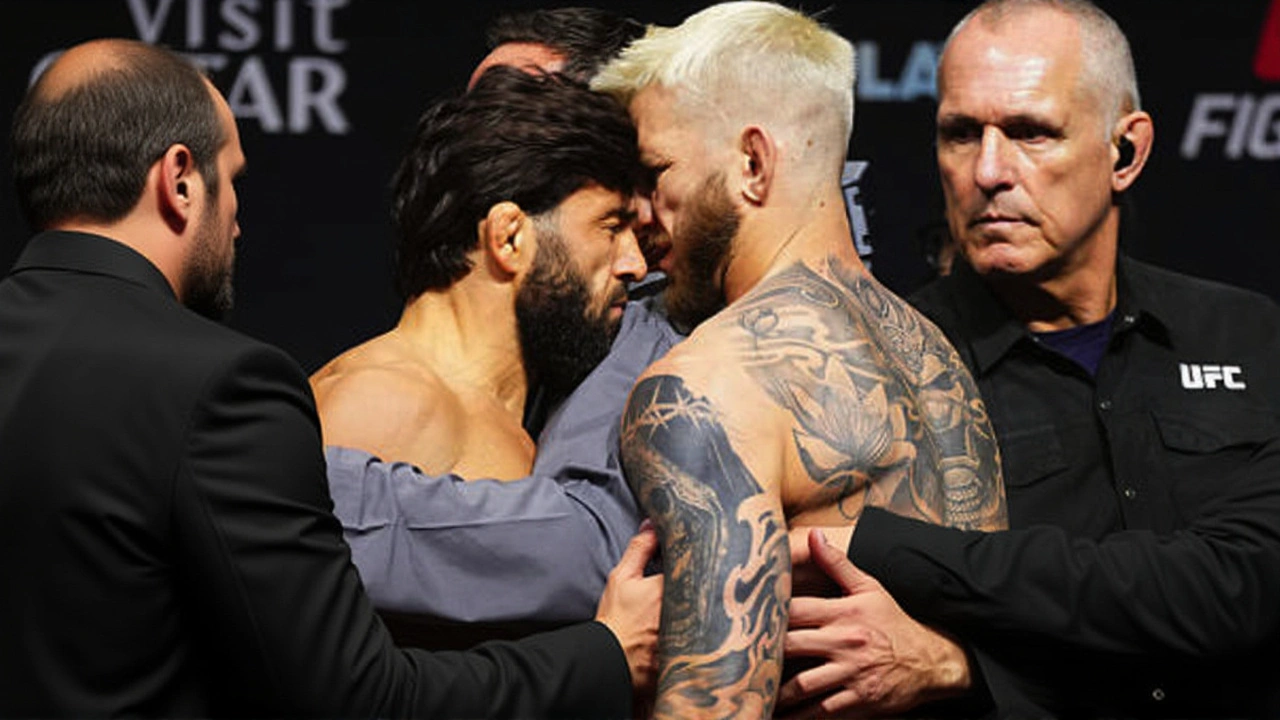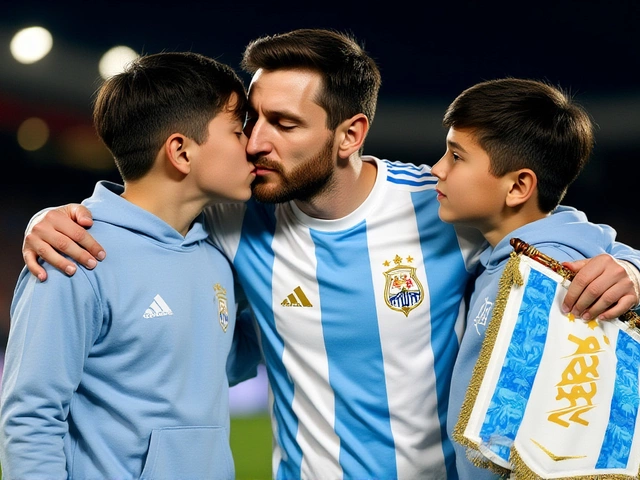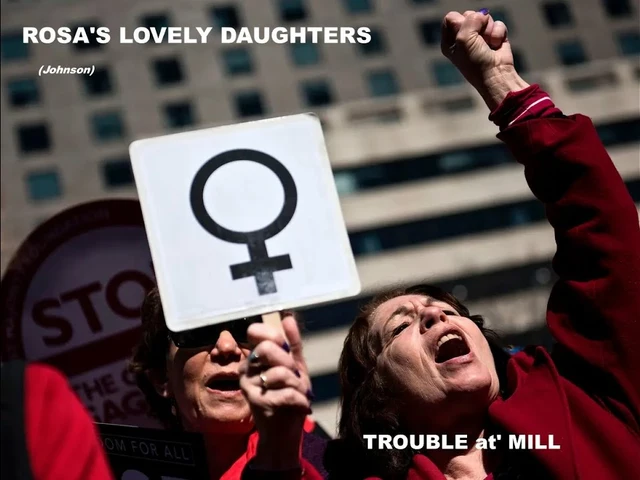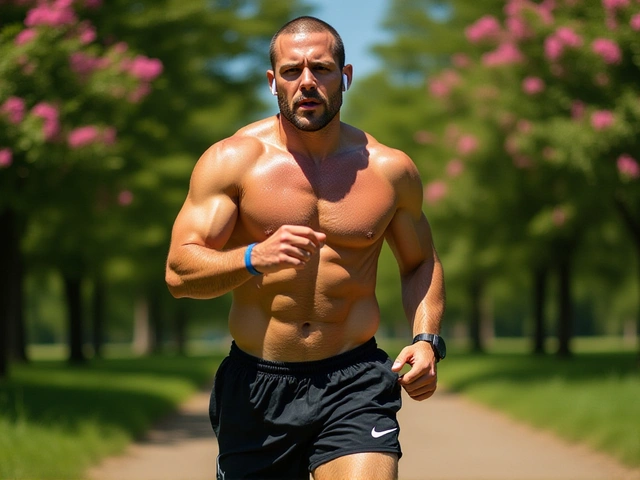On August 24, 2024, at the Las Vegas finale of The Ultimate Fighter Season 32Las Vegas, Ryan Loder, a 33-year-old former University of Northern Iowa wrestler, stopped Robert Valentin with a second-round TKO to claim the middleweight title and a six-fight UFC contract. The win wasn’t just another fight—it was the culmination of a four-year dream, a wrestling foundation built on grit, and a quiet revolution in how athletes transition from one sport to another. Loder, who grew up in Granite Bay, California, didn’t even want to watch MMA as a kid. His mom banned it. But now? He’s standing in the octagon as a UFC champion. The twist? Loder wasn’t supposed to be here. Not really. He was one of just two Americans among 16 fighters from 15 countries, all locked in a Las Vegas house for a month with no phones, no internet, no outside world. That isolation didn’t break him—it sharpened him. He beat Tom Theocharis by submission in the quarterfinals, then outlasted Omraan Chaaban in a unanimous decision to reach the final. His path wasn’t flashy, but it was relentless. And when the bell rang for the championship, he didn’t just fight—he dominated. Wrestling roots are the bedrock of Loder’s rise. At UNI, he compiled an 114-27 record over five years, earning All-American honors in 2013 after placing seventh at the NCAA Championships in Des Moines. He was a four-time NCAA qualifier, a 2011 Western Wrestling Conference Freshman of the Year, and a six-time conference wrestler of the week. His coach, Doug Schwab, called him "one of the most disciplined athletes we’ve ever had." Those years on the mat didn’t just teach him how to pin someone—they taught him how to outwork everyone, even when no one was watching. He didn’t even start MMA until 2021. "I never wanted to be a fighter," Loder admitted in a post-fight interview. "My mom wouldn’t let us watch boxing or WWF." But a friend talked him into an amateur bout. He won by TKO in the first round. That was it. The spark caught. He turned pro, trained seven days a week under Urijah Faber at Team Alpha Male in Sacramento, and went 9-1 in his pro career—until the UFC reset his record to 0-0 the moment he won this tournament. "This isn’t ‘I made it,’" Loder said. "This is ‘now your foot is in the door.’ Now I have to go prove myself." What makes Loder different isn’t just his record or his technique—it’s his mindset. He’s not chasing fame. He’s chasing mastery. He coaches wrestling at Apex Wrestling, advocates for mental health in combat sports, and still trains like he’s 19 and trying to make the team. His UFC debut will be his 11th professional fight, but his first as a ranked contender. That’s the beauty of The Ultimate Fighter: it doesn’t care about your past. It only cares about what you do now. The UFC has seen plenty of wrestlers make the leap—Dan Henderson, Kamaru Usman, Dan Gable’s protégés—but few with Loder’s background and humility. He doesn’t talk about trophies. He talks about routines. He doesn’t mention the cameras. He mentions his team. His victory wasn’t just about beating Valentin—it was about proving that discipline, not drama, still wins in a sport increasingly obsessed with hype. His next fight? That’s the real test. The UFC doesn’t hand out contracts to winners of reality shows—it hands them to fighters who can survive the grind. Loder knows that. He’s already back in the gym. His next opponent? Unknown. His next challenge? The same as always: outwork the next guy.
What Led to This Moment?
Ryan Loder’s journey wasn’t linear. After wrestling at UNI from 2009 to 2014, he briefly stepped away from competition. He worked odd jobs, coached high school wrestling, and stayed in shape. But the itch never left. In 2021, at age 28, he walked into Team Alpha Male on a whim. Urijah Faber, a former UFC contender and legendary coach, saw something rare: a wrestler who moved like a predator but thought like a scholar. "He could be successful in anything," Faber said. "He’s just chosen this one."The UFC’s New Kind of Champion
Unlike many UFC stars who rise through social media clout or knockout power, Loder’s appeal is quiet but deep. He doesn’t trash-talk. He doesn’t flex on Instagram. He trains before sunrise, ice baths at midnight, and spends his evenings mentoring young wrestlers. His victory in Season 32 was the first time a former NCAA Division I wrestler from a mid-major program like UNI won the show since 2017. It’s a sign that the UFC is expanding its talent pool beyond the usual powerhouses.What’s Next for Loder?
UFC officials confirmed Loder will be assigned an opponent in the next 45 days. His first fight will likely be against a ranked contender, given his tournament win. Analysts expect him to be placed in the middleweight division’s top 15 within six months. Meanwhile, University of Northern Iowa Athletics issued a press release on August 25, 2024, calling his win "a landmark achievement for our program."
Why This Matters Beyond the Octagon
Loder’s story resonates because it flips the script. In an era where athletes are marketed as brands, he’s a reminder that legacy is built in silence—early mornings, sore muscles, lonely runs, and unwavering focus. He didn’t need viral moments. He needed consistency. And that’s the lesson for every kid watching from a small town: you don’t have to be the loudest to be the best.Frequently Asked Questions
How does Ryan Loder’s wrestling background give him an edge in the UFC?
Loder’s 114-27 collegiate wrestling record gave him elite-level takedowns, control, and defensive awareness—skills that translate directly to MMA. Wrestlers dominate UFC middleweight rankings because they control pace and terrain. His ability to grind opponents down on the mat, combined with his cardio from years of dual-sport training, makes him exceptionally hard to outlast.
Why did the UFC reset Loder’s professional record to 0-0?
The UFC treats The Ultimate Fighter tournament as a clean slate for rankings. Even though Loder was 9-1 as a pro, winning the season grants him a contract and entry into the official UFC rankings, which start fresh. This ensures tournament winners compete against other top prospects, not veterans with long records. It’s a system designed to create new stars, not reward past wins.
Who coached Ryan Loder, and why is Team Alpha Male significant?
Loder trains under Urijah Faber at Team Alpha Male, one of the most respected MMA gyms in the U.S., known for producing champions like Dominick Cruz and TJ Grant. Faber’s emphasis on fundamentals over flash made him the ideal coach for Loder’s methodical style. The gym’s culture of discipline over ego aligned perfectly with Loder’s approach.
What impact does Loder’s win have on collegiate wrestling programs?
Loder’s success proves that wrestlers from non-powerhouse schools can thrive in MMA. UNI, a mid-major program, now has two All-Americans who became UFC fighters—Loder and David Bonin. This could inspire more NCAA wrestlers to consider MMA as a viable post-collegiate path, especially as the UFC actively scouts Division I talent beyond the traditional powerhouses like Iowa or Oklahoma State.
How did the isolation of The Ultimate Fighter house affect Loder’s performance?
The month-long isolation, with no phones or outside contact, forced Loder to focus entirely on his craft and team dynamics. With only 15 other fighters from 15 countries, he had to adapt culturally and mentally. He later said the experience helped him shed distractions and sharpen his mental toughness—key traits for surviving in the UFC’s high-pressure environment.
What’s the significance of Loder being one of only two Americans in Season 32?
The international focus of Season 32 highlighted the UFC’s global expansion. Loder’s win as one of just two Americans among 16 fighters from 15 countries shows that talent is no longer concentrated in the U.S. His victory proves American wrestlers can still dominate on the world stage, even when outnumbered. It also signals a shift in UFC casting—prioritizing skill over nationality.

 Illimité Escort Girl Avignon: What You Need to Know Before You Go
Illimité Escort Girl Avignon: What You Need to Know Before You Go
 Letting The Freak Flag Fly At The Folsom Street Fair
Letting The Freak Flag Fly At The Folsom Street Fair
 Messi nets two in tearful Buenos Ayres farewell as Argentina beat Venezuela
Messi nets two in tearful Buenos Ayres farewell as Argentina beat Venezuela
 Can one simultaneously be feminist and MRA?
Can one simultaneously be feminist and MRA?
 Spencer Matthews launches PROJECT SE7EN: seven Ironman triathlons on seven continents in 21 days
Spencer Matthews launches PROJECT SE7EN: seven Ironman triathlons on seven continents in 21 days